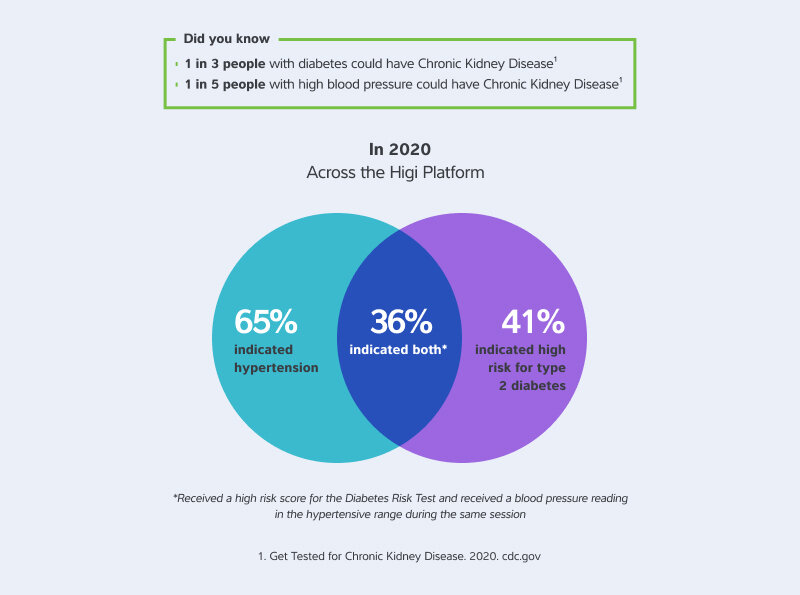Chronic Kidney Disease - Risk Factor Identification and Management
Consumer education has always been a core tenet of our platform. It’s not enough to simply tell our consumers they are at risk for chronic diseases like diabetes or heart disease. At Higi, we help our consumers take control of their health by educating them about how they can lower their risk factors. For the first time since the 2019 launch of digital our education series – Content to Care – we’re focusing our efforts on Kidney Health. Why? To start, Type 2 diabetes and high blood pressure are the two major causes of chronic kidney disease (CKD) in US adults (CDC). And Higi happens to collect patient data about those two risk factors at scale.
The relationship between high blood pressure and chronic kidney disease doesn’t stop there. High blood pressure damages kidney’s blood vessels, and the extra fluid in blood vessels can raise blood pressure even more, creating a dangerous cycle (NIH).
The costs associated with management of CKD are high. In 2017, CKD cost Medicare plans over $84 billion and treating people with End Stage Renal Disease (ESRD) cost an additional $36 billion (CDC).
The CDC estimates that about 37 million adults in the US have CKD, and that almost half (48%) are undiagnosed (CDC). Since many patients don’t experience any symptoms at the onset of the disease, this can equate to hidden costs for the healthcare organizations taking risk on these patients. That’s where Higi comes in: our platform provides a valuable, accessible and free resource for patients and their care teams to better understand risk for CKD, as well as other chronic diseases. Patients can learn about and track these leading indicators, and via Higi and our partners, get connected to the resources they need to prevent, diagnose or manage the condition.
The same recommendations hold true for those at risk for or managing CDK. The Higi platform, along with our retailer, health plan and provider partners offer the care and resources patients need to reduce their risk and effectively manage their disease.



